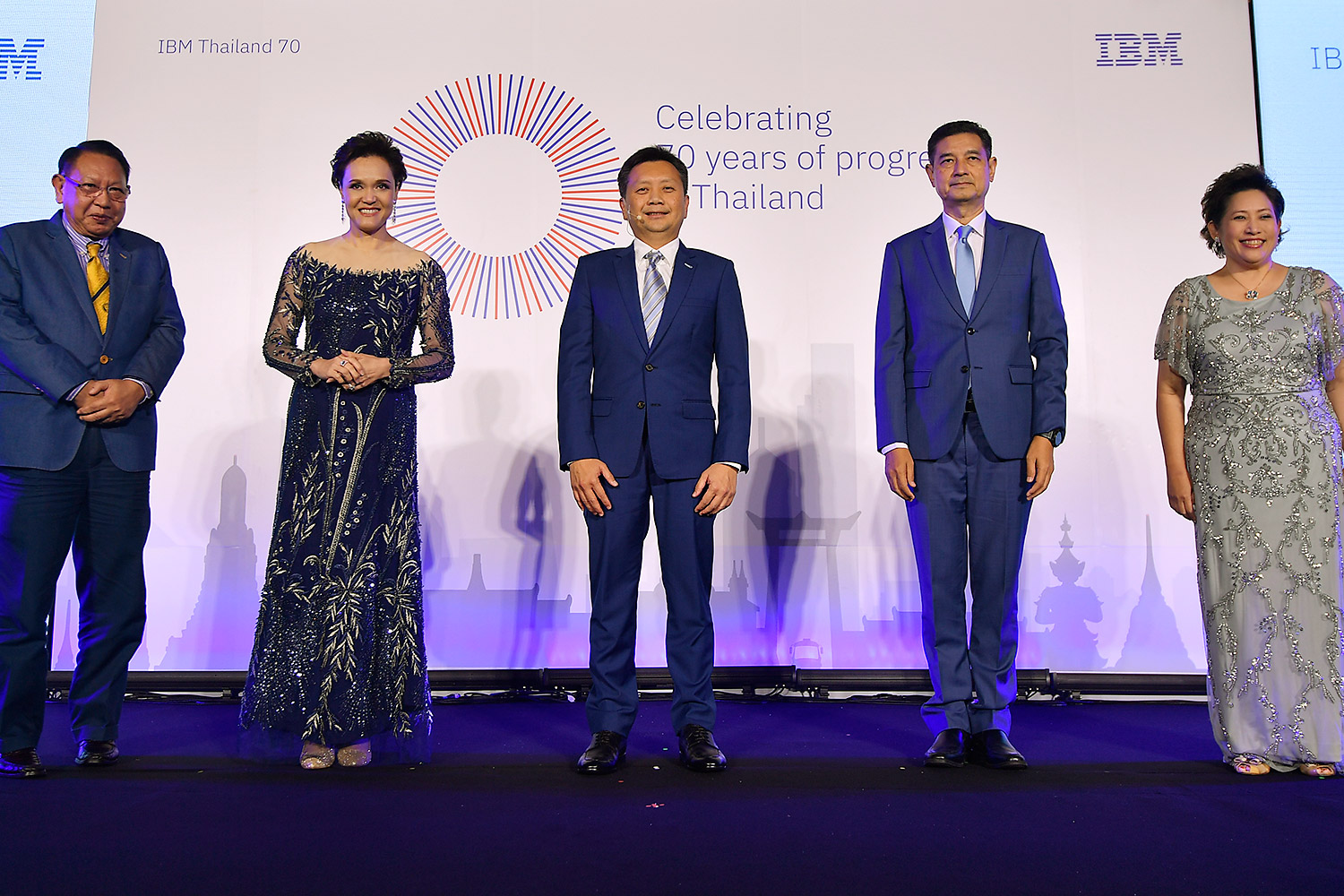IBM Thailand, a local operating unit of the global technology firm, has emphasised the importance of sustainability among businesses that can be powered by hybrid cloud and artificial intelligence (AI) for growth.
"We are now in the era of sustainable business that can be underpinned by AI and hybrid cloud," Sawat Asdaron, managing director of IBM Thailand, said at an event to mark the local unit's 70th anniversary.
There are three pillars that can support sustainable business, he said.
The first lies in various technologies that can help businesses reduce pain points, such as hybrid cloud, AI, blockchain, quantum computing and cybersecurity. These technologies can help businesses become more automated and transform into data-driven predictive outcome organisations.
The second involves ecosystem partnerships, where businesses can drive their sustainable growth and leverage innovation provided by global partners.
The third pillar concerns talent and workforce. Mr Sawat said IBM is committed to its plan to provide 30 million people globally with new skills by 2030.
IBM Thailand has worked with various educational institutes in Thailand to enhance people's skills, which can help create job opportunities, narrow the digital skills gap and cultivate a new young workforce, he said.
The company attaches great importance to sustainability, said Mr Sawat. IBM aims to achieve net-zero greenhouse gas emissions by 2030.
"Sustainability is the future of IBM and S-curve businesses," he said.
"We also see opportunities for technology to help customers achieve their sustainability goal."
Citing an annual study by IBM, which surveyed more than 3,000 chief executives worldwide, Mr Sawat said nearly half of them rank sustainability as a top priority for their organisations, an increase of 37% from 2021.
However, more than half (51%) also cite sustainability as one of their greatest challenges over the next 2-3 years, alongside lack of data insights, unclear returns on investment, and technology barriers.
Some 95% of chief executives report being at least in the pilot stage of implementing their sustainability strategy, while under a quarter (23%) say they are implementing their sustainability strategy across their entire organisation.
IBM last year completed the separation of its managed infrastructure services business to Kyndryl, said Surarit Wuwong, technology leader at IBM Thailand.
The company has two core businesses, consisting of IBM consulting and IBM technology.
"We increased our resource client engineers and customer success managers to support our customers," Mr Surarit said. "We will drive support of hybrid cloud and AI, working with customers and partners to build innovation. We will continue to invest in R&D and strategic acquisitions."
The use of hybrid cloud and AI will drive the speed of project delivery to days or hours, instead of years or months, he said.
Some 80% of large enterprises have already deployed hybrid cloud, said Mr Surarit.
AI can serve businesses in many areas, such as supporting automated workflows and maximising insight from a large volume of data, he said.
According to IBM's Global AI Adoption Index 2022 survey, which gauged the opinions of 7,502 senior management respondents, 35% of the companies leverage AI in their business, up from 13% in 2021.
Mr Surarit said over the past seven decades, IBM Thailand has played a part in supporting millions of financial transactions, developing various national platforms, enabling AI intelligent power, building future talent and providing sustainability-linked technology.

